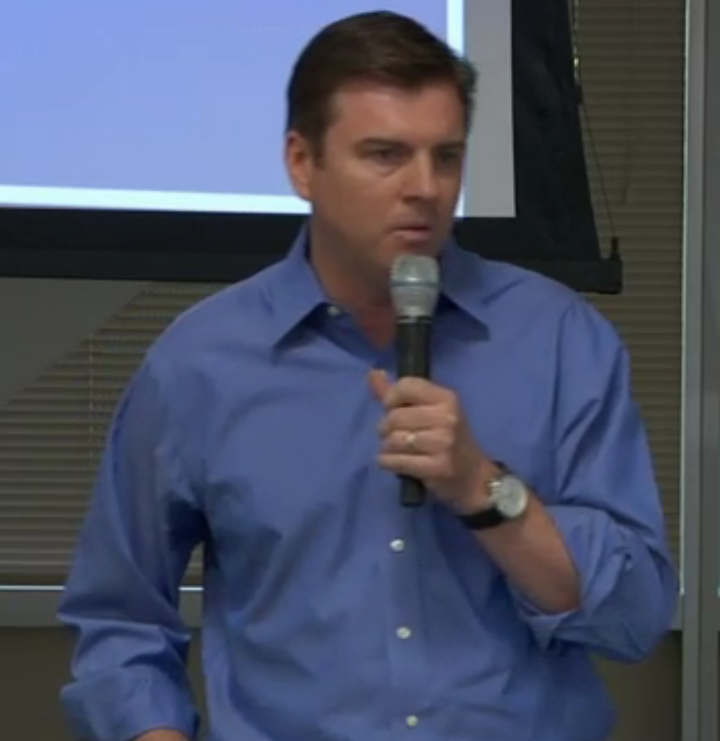 NEWS
NEWS
 NEWS
NEWS
 NEWS
NEWS
Facebook’s holding steadfast to its social dominance, teaming with Skype to offer even more points of interaction within its network. The “something special” we’ve been waiting ![]() to hear about all week is indeed video chat on Facebook, powered by Skype. “it’s a way to connect with friends other than just posting messages,” Facebook CEO Mark Zuckerberg says during today’s announcement at the company’s headquarters in California. It’s Facebook’s innagural forray into video chat, making it all the more competitive with other social and chat services, delivering the best of both worlds to its 750 million users worldwide.
to hear about all week is indeed video chat on Facebook, powered by Skype. “it’s a way to connect with friends other than just posting messages,” Facebook CEO Mark Zuckerberg says during today’s announcement at the company’s headquarters in California. It’s Facebook’s innagural forray into video chat, making it all the more competitive with other social and chat services, delivering the best of both worlds to its 750 million users worldwide.
In many ways Facebook is playing catch-up, and so far the service is already limited–there’s no group video chat, no mobile support, and all-in-all a stripped down version of what Skype’s actually able to offer through its standalone application. Skype’s been playing a bit of catch-up itself, only recently launching video chat on Android, and slowly rolling out group video chat on mobile platforms.
But both Facebook and Skype are on a decided path of growth and shared acquisition, in part under Microsoft’s lead. It’s a massive undertaking to power video chat for a network as extensive as Facebook’s, and while this isn’t the first time the two have teamed up on an initiative, it is among the first major developments since Skype’s acquisition by Microsoft, and Facebook’s official plans towards an IPO. From Microsoft’s standpoint, a Facebook team up was inevitable.
Skype CEO Tony Bates reveals that “the first meeting he and Steve {Ballmer] took after the announcement of acquisition was with Mark Zuckerberg.” Certainly, Skype was in dire need of a more integrated point of access for the social realm, as Skype had been struggling on its own to remain relevant through diversified access points across devices, networks and services.
While today’s news is anticlimatic in some ways, it does answer a lot of lingering questions we had about Skype, and whether or not Microsoft would be able to deliver. Managing video chat for Facebo![]() ok is a large-scale integration project, sharing a great deal of data between the two services. And with plans to incorporate direct calling to Facebook users amongst other features, there’s going to be a heavy load for both services when it comes to data transfer. One major perk is Skype’s existing P2P infrastructure, which can generally manage its big data needs. That means the team up “won’t be adding significant load to the Facebook infrastructure,” as Zuckerberg clarifies during today’s announcement.
ok is a large-scale integration project, sharing a great deal of data between the two services. And with plans to incorporate direct calling to Facebook users amongst other features, there’s going to be a heavy load for both services when it comes to data transfer. One major perk is Skype’s existing P2P infrastructure, which can generally manage its big data needs. That means the team up “won’t be adding significant load to the Facebook infrastructure,” as Zuckerberg clarifies during today’s announcement.
In the same breath, Zuckerberg also let loose some details regarding its datacenters, saying that more Facebook-owned datacenters are on the horizon. In planning the network’s scale-out solutions, knowing that partnerships with Skype will relieve some of its own datacenter stress in the future. And good thing, as Skype’s closing in on 1 billion users with hundreds of billions of minutes of Skype-to-Skype calls taking place at any given point. Combine that with Facebook’s own aims for worldwide domination, and you’ve got hold of about one in every four people on the planet. Way to go, Microsoft.
THANK YOU